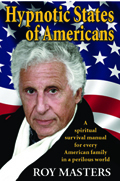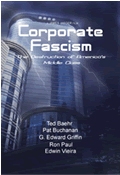By
Former Arizona State Senator Karen Johnson
September 14, 2011
NewsWithViews.com
In the late 1100s, Richard the Lion-Heart ruled England. Richard was a skilled military strategist. At the age of 16, he raised an army to assist his older brother, Henry, in an attempt to overthrow their father, King Henry II. They fought their father's armies unsuccessfully for 18 months before giving up and begging the King for forgiveness, which he granted. After the deaths of his brother and his father, Richard ascended to the throne. He viewed England as little more than a source of revenue. He sold anything he could get his hands on B land, privileges, positions, and rights B in order to raise money to finance his military campaigns. Richard was reported to have once said, "I would have sold London, if I could find a buyer." As soon as he became king, he prepared to leave on a Crusade to the Holy Lands to recapture the territory that had been overrun by the Muslims. To raise funds for the Crusade, he emptied the royal treasury, fired thousands of public officials, then made them pay him to be reappointed. He charged cities and towns throughout England a cash sum in order for them to have a Charter of Freedom. Then he levied a general tax on everyone.
In the Holy Lands, Richard fought the great Muslim leader, Salah ad-Din (Saladin) but failed to overthrow him. On his way home to England, he was captured by the Holy Roman Emperor and imprisoned in Germany. His mother managed his affairs in England and tried to raise money for his release, while Richard's brother, John, plotted to seize the throne. John allied himself with the King of France, who attacked England and raided many villages and towns.
After two years, Richard was released from prison. As soon as he arrived in England, he laid more taxes upon his subjects, raised an army, and sailed across the Channel to exact revenge upon the French King for attacking England while he was imprisoned. He recaptured all the English territory that the French had taken and re-established peace but then got into a quarrel with one of his nobles, whose archer shot Richard with an arrow and killed him.
Richard's death put his younger brother, John, on the throne. Everyone distrusted and disliked John, so the Archbishop of Canterbury made him swear an oath that his throne was held by the election of the nation and the grace of God. John cared little for the sanctity of his oath, however, and refused to take the sacrament during his coronation ceremony. He was a man without scruples who, although he was a good administrator, alienated everyone and continued the kingly practice of taxing his subjects heavily in order to finance a war against France.
Shortly thereafter, the Archbishop of Canterbury died and the Pope appointed a man named Stephen Langston as the new Archbishop. John did not approve of Langston, so he threatened to burn the cloisters if the new Archbishop, who had been teaching in France at the time of his appointment, dared to set foot in England. The King warned the Pope not to intervene or he would banish every Catholic clergyman from England. The Pope ignored John's threats and issued an "interdict" against England, suspending all church services except for baptism and extreme unction. The clergy closed the churches, and church bells were silenced. The dead were buried in unconsecrated ground. One can only imagine the punishing effect this had on the English people.
John retaliated by confiscating all the church property in England and turning it over to laymen. So the Pope retaliated by excommunicating King John. Then John retaliated by marching on church properties in Ireland, Scotland, and Wales. As the battle between John and the Pope escalated, John's subjects took the brunt of it. With the churches closed and John demanding manpower and cash for his army, life in England was far from tranquil.
Meanwhile, John betrayed his second wife and begat a series of illegitimate children by various mistresses, scandalizing his subjects in the process. He threw many Jews in jail in order to confiscate their property and their money. He neglected the imprisoned Catholic clergy, some of whom died as a result. He taxed the nobles incessantly. Finally, with John stubbornly resisting all forms of pressure, the exasperated Pope exercised his last option. He issued a "Decree of Deposition" against King John. This decree released John's subjects from their oath of allegiance to the king and declared that John's property was subject to the lawful spoil of whomever could take it from him. The King of France rose to the challenge, assembled an army, and marched toward Aquitaine to confiscate the English King's property in France.
When John attempted to raise an army, he discovered that his nobles were no longer loyal to him, and he finally realized the precarious position he was in. So, he made a deal with the Pope's representative in England that, if the Pope would lift the interdict, rescind John's excommunication, and negate the deposition order, he would return all the church property and surrender England and the crown to the Pope in feudal vassalage B an act which thoroughly shocked his subjects for, though they were loyal to the Pope, they had not been his feudal vassals. John left for France to defend his property there against King Phillip, but his Barons were sick of his wilful, arbitrary orders and refused to follow him. He went into battle with a skimpy, rag-tag force, and was defeated. When he returned to England, he was bitter and resentful. He retaliated against the nobles for their refusal to follow him to battle by demanding a money payment in lieu of military service. But the barons had had it. They were weary of his taxes, his vengeful wars, his violations of church, tradition, and law, and his bartering of England to the Pope. They responded by sending a delegation to the King demanding a return to the laws of Henry I, which had protected the rights of the nobles and limited the powers of the king. John ignored them.
Receiving no response, the nobles armed themselves and went to London to build support for their cause. They consulted with the Archbishop of Canterbury, Stephen Langston, and his Bishops, who helped them to draft a list of freedoms that they expected the King to recognize. Then they hunted John down to present the list to him. At Runnymede, on June 15, 1215, they finally caught up with the King and the few supporters he had left, where they presented him with their list of freedoms and forced him to sign the document known to us as the Magna Carta.
The Magna Carta was a list of 62 freedoms that they expected the King to honor. Among the freedoms listed were:
1.
Property could not be taken from the owner without just and fair compensation.
2. Justice could no longer be purchased.
3. No one would be imprisoned without a trial
4. No taxes could be levied without representation.
But wait! That's not the end of the story. John signed the document, but he had no intention of following it. The very next day he began making plans to annul the Charter. He appealed to the Pope, who sided with him. The Pope declared the Charter to be void, and forbade the nobles from enforcing it. The nobles ignored the Pope, who then excommunicated them, plus the residents of London and five port cities who had helped to organize the opposition to John.
In a brave stand for freedom, the Archbishop of Canterbury, who had helped to write the Magna Carta, refused to publish the Pope's edict. In retaliation, the Pope's representatives in England, suspended the Archbishop, published the edict, and then raised an army of foreign mercenaries to enforce it. The mercenaries descended upon England and attacked the nobility with ferocity. They plundered, murdered, raped the women, and burned their properties. The nobles appealed to the King of France to rescue them. They had been shocked when King John offered up all of England in vassalage to the Pope, but now they offered the English throne to France if the French King succeeded.
The French King's son, Louis, immediately led the French army to London where the Barons welcomed him and paid homage to him. The Pope=s representatives, however, excommunicated Prince Louis to discourage him from interfering. Despite the warm reception the French received in London, the rest of England refused to surrender to France. It looked as though John, in spite of himself, had prevailed. Nevertheless, it ended badly for John. At the height of his triumph, John was stricken with dysentery. Weak and ill, he dragged himself to a monastery and died at the age of 49. The Magna Carta stood.
But wait! That's not the end of the story. Kings being kings, the people of England clung to the Magna Carta, insisting not always successfully that their monarchs obey its principles, while a body of common laws slowly built up to support the Magna Carta, defend their freedom, and protect them against the always present danger of a too-powerful ruler. It was a slow, demanding process.
Four hundred years later, they were still at it. In the early 1600s, King Charles I wanted more money than Parliament would give him. So he imposed illegal taxes on his subjects, demanded "loans" from property owners, forced citizens to house soldiers, denied the rights of habeas corpus and trial by jury, and held Star Chambers. King Charles was not a bad man but was accustomed to having his kingly way when he wanted it. He backed down temporarily when Parliament forced him to sign a "Petition of Right" which reminded him of the provisions of the Magna Carta. But he soon reneged and continued to oppress his subjects and inflame Parliament. It ended badly for Charles. Civil War erupted and the king was executed, but the Rule of Law survived.
But wait! That's not the end of the story. More than 100 years later, the struggle to enforce the Rule of Law continued. In the 1770s, in the British colonies in America, King George violated the freedom of his subjects in multiple arbitrary ways. When he didn't like the laws passed by the colonial legislatures, George simply revoked them and placed onerous restrictions on trade that favored England at the expense of the colonies. He viewed the colonies as a source of revenue, and imposed heavy taxes, import duties and regulatory fees.
Thoroughly sick of King George's arbitrary violations of their freedom, the American colonists did what their ancestors at Runnymede had done more than 500 years earlier. They presented their King with a list. This time, it was a list of grievances, an enumeration of the ways he had violated their freedom. They called this list the Declaration of Independence. King George rejected their list, so they had to fight a bloody revolution to make it stick. It ended badly for George, but the Rule of Law was advanced. When the war was over, the colonists drafted a Constitution to "bind down their leaders with chains" to the Rule of Law.
But wait! That's not the end of the story. Nearly 150 years later, in 1913, the colonies (now called states) had a ruler (now called a President) who manipulated his people into accepting a clever, complex new banking system that would ultimately give the President massive powers, simultaneously depriving the people of their rights. Over the next 10 decades, the rulers manipulated the economy with self-serving laws, taxes, and regulations that increased the power and the purse of the rulers while slowly eating away at the freedom and prosperity of the common people. Like other despots before them, the rulers viewed the people as little more than a source of revenue. This time, it happened so slowly and so subtly that most of the people didn't realize for a long time that they were losing their freedom. At the same time, people forgot why the Rule of Law was important. Expressing support for the Rule of Law became unfashionable.
Now a new despot holds power in the land, worse than any before him. Like the kings of old and, in violation of the Rule of Law, he issues commands (now called Executive Orders) that grossly violate the freedom of his people. He refuses to enforce any laws he doesn't like. He treats his people like a source of revenue, always pushing for higher taxes and fees. If he can't persuade his Congress to raise taxes, he just coerces Congress into "borrowing" money from his clever banks, which means he prints all the money he could ever want B billions and trillions of dollars. Like the tyrants who came before him, he ignores the law. He thinks he IS the law. He thinks he is a king.
| Subscribe to the NewsWithViews Daily News Alerts! |
But that's not the end of the story. If history is any guide, the Rule of Law will prevail, because liberty eventually overcomes tyranny.
The Rule of Law is the cornerstone of freedom. It states that ALL men are subject to law, even the kings and presidents who rule over nations. The Rule of Law is a mighty fence that stands between order and chaos, between civilization and barbarism, between liberty and tyranny.
The Utah Compact tosses aside 800 years of history as thoughtlessly as a wanton woman casts aside her virtue. Like a lovely temptress, the Compact whispers beguiling phrases that seduce listeners into ignoring the Rule of Law in favor of a well-meaning but misguided compassion. We succumb to the temptress at our peril.
� 2011 Karen Johnson - All Rights Reserved
Karen Johnson served in the Arizona legislature for 12 years, from 1997 through 2004 (AZ House of Representatives) and 2005 - 2008 (AZ Senate). Her all-time favorite committee assignment was chairing the Federal Mandates and States' Rights Committee. During her service in the legislature, she supported the Second Amendment, individual, property and of course states rights, as well as the Right to Life, and she still does. Karen and her husband, Jerry, have 11 children and 35 grandchildren. She believes strongly in the doctrine of liberty and does not desire to be tethered to ANY particular party.
Website:
E-Mail: Kstjohnson747@gmail.com












 Share
This Article
Share
This Article




